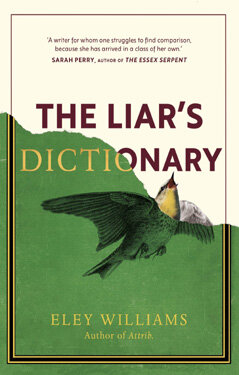When I was growing up one of my favourite parts of visiting a big city was going to that city's Chinatown. I don't think I ever necessarily felt I was getting an “authentic” Chinese experience but I enjoyed the food, confectionary and atmosphere. It wasn't until I read the author Madeline Thien's article 'Farewell to the fairy palace: are Chinatowns obsolete?' that I started thinking more complexly about these physical locations and how their “deliberately exoticised” architecture is more for tourists rather than its residents. Also, Chinatowns' “alleyways and buildings are the physical evidence of a discriminatory history”. The development, appearance and history of these locations is something the journalist Bonnie Tsui has written about extensively. Thien refers to Tsui's writing in that article and Charles Yu repeatedly quotes her in his novel “Interior Chinatown”. The story creatively and entertainingly lifts the lid not only on a location, but the hearts and minds of its characters whose sense of self is often occluded by stereotypes and (literally) the roles they are forced to play.
The novel takes the form of a script for a TV drama cop show called “Black and White” that's set in the Golden Palace restaurant in Chinatown. Our hero is Willis Wu, but he is not the hero of this show. Rather he's an extra often relegated to being the “Generic Asian Man” in the background. He has a clear idea of the series of roles he hopes to obtain as a stepladder to achieving what he sees as the supreme part of “Kung Fu Guy”. That this is the ultimate he can aspire to says a lot about the limited ways a Western audience is prepared to see Asian actors in their TV shows and, by extension, in Western society itself. But this doesn't come across in a didactic way. Rather, Willis' aspirations are so sincere that he's an extremely endearing character who becomes more conflicted, layered and complex as we follow his journey and bungled attempts to become the lead in a show whose inherent structure won't ever allow him this status.
Although it doesn't use a conventional form of narrative this novel is very easy to read because it plays upon generic notions we're all familiar with from watching films and television. It's very funny because we can anticipate the characters' scripted response to a situation, but as the story progresses this humour becomes laced with the melancholy and frustration of individuals who are locked into playing certain roles. There's almost a sci-fi quality to the novel's structure in that reality melds into this TV drama so that it almost feels like Willis is a character in a video game repeatedly playing out set scenarios in the valiant hope of becoming the victor. At the same time we get the backstories of various other people in Willis' life. Even if these individuals have achieved the ultimate roles available to them age soon relegates them to debased parts. Distinctions are also made between the discriminatory experiences felt by different minority groups. Gradually figures emerge who help Willis understand that he shouldn't limit his expectations for who he can become.
The overall tone of this novel is humorous and clever, but the author doesn't shirk from listing historical incidents where legislature in the US excluded Asian people from immigrating to and owning property in the country. It not only makes the reader reassess their understanding of American history but also their personal experience of how Asian culture and identity has been packaged for Western consumption. It definitely made me think about the television and movies I watched growing up where Asian actors were more often cast to play stereotypes rather than fully rounded characters. I'm glad this novel recently won the National Book Award as its clear concept is so expertly built into a fully engaging story, but the nuance and complexity of what it really says has a moving and haunting effect.























